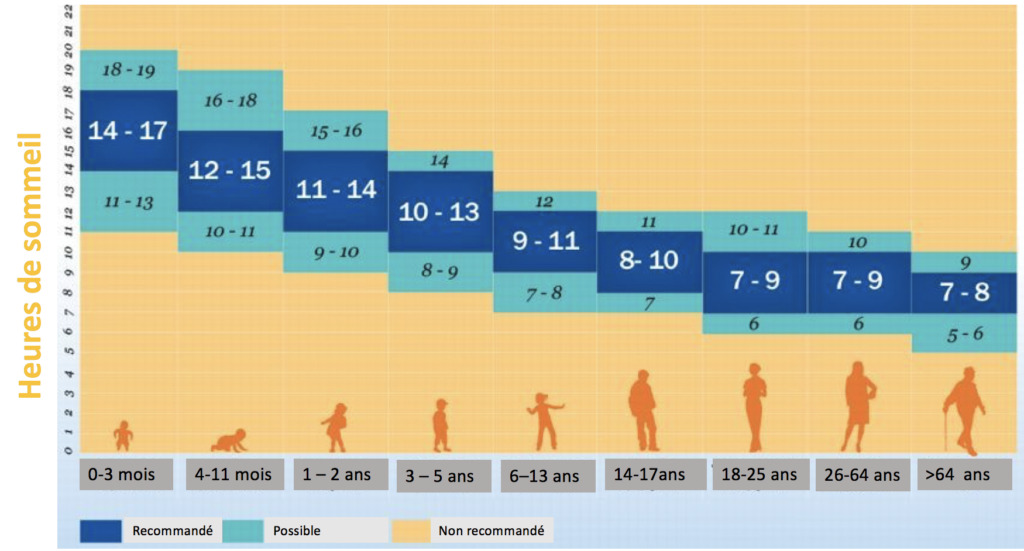Published on
Updated
Reading 3 mins.
Simply delaying your child’s bedtime by half an hour can be detrimental to him, both physically and mentally, according to a new study. A negative effect felt in just a few days.
“5 more minutes, mom…”. If you are the type to allow your child’s bedtime to be postponed from time to time (to spend time with him, because you are busy, in case of unforeseen events, etc.), know all the same that this practice can have a negative effect on his health.
According to a New Zealand study which focused on the sleep time of children aged 8 to 12, and the effect of its deprivation on daily life, a negative effect would be felt from 30 minutes less sleep. And when this deprivation reaches 39 minutes, it is the quality of life and the follow-up at school that would suffer.
As part of the DREAM study (for Daily Rest, Eating, and Activity Monitoring), a hundred children aged 8 to 12 underwent alternating weeks of restricted sleep and prolonged sleep. All were in good health with no sleep problems.
Children’s bedtimes were changed to be either one hour later than usual (sleep restriction) or one hour earlier (sleep extension). The children still woke up at their normal times. A “neutral” week was established between the two weeks of testing. According to their observations, during the week of sleep restriction, the children fell asleep on average 58 to 64 minutes later than usual and woke up 19 to 24 minutes later. Hence an estimated loss of 39 minutes.
The researchers then asked parents and children to rate the children’s health-related quality of life using various questionnaires.
- Thus, the study reported significantly lower scores for physical well-being and the ability to adapt well to the school environment when fatigued;
- A reduction in psychological well-being, autonomy and parental relationships were also observed in a milder way.
Why are these findings important?
Asked by Healthline magazine, Dr. Azizi Seixas, associate director of the Center for Translational Sleep and Circadian Sciences at the University of Miami Health System, the study challenges parents to take sleep seriously, whether it either for themselves or for their children.
“From food choices to exercise, coping skills and social engagement, all of these components of a healthy life can be positively or negatively affected by sleep.”
For Dr. Philip Pirtle, sleep expert and pulmonologist from Houston, the interest of this study also lies in the sample studied. Unlike other studies on the subject, the participants did not suffer from sleep disorders. “This demonstrates that all children need adequate quantity and quality of sleep to maintain their sense of well-being and their ability to cope in the school environment,” Pirtle said.
Consult a doctor online for your sleep disorders
To maintain an adequate sleep rhythm, corresponding to a healthy lifestyle, researchers agree on several points:
- Avoid all sources of blue light before and at bedtime (computer, smartphone, etc.), which can interfere by sending the wake-up signal to the brain;
- Create and maintain regular bedtimes that will allow children’s developing brains and bodies to get enough rest;
- Stick to this consistent routine throughout the yearwhatever the period.
As a benchmark, in 2017, the National Sleep Foundation evaluated sleep durations by age group according to the intake necessary for good health. If the necessary duration differs according to the needs of everyone (light and heavy sleepers), the table nevertheless provides an average as close as possible to the latest studies on the subject:

